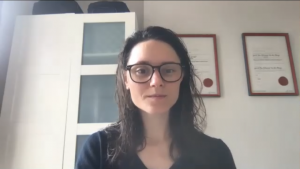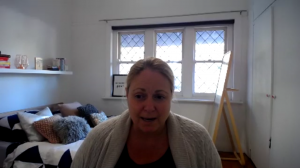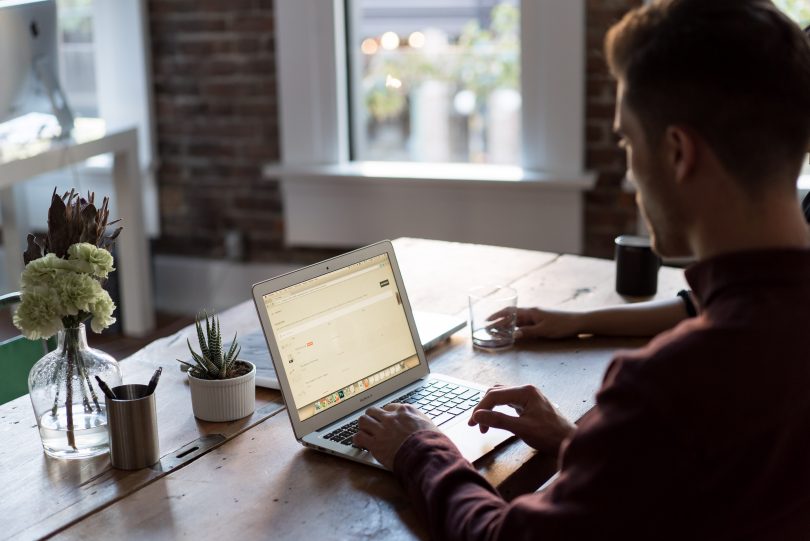To say working from home has been a mixed bag for Australians would be an understatement.
For some, the coronavirus outbreak and subsequent lockdown meant home cooked lunches, daily yoga classes and uninterrupted blissful productivity in the comfort of your own home were all part of the new routine of their work day.
For others, it brought endless technical difficulties, mental health issues onset by isolation and lack of support, and the inability to ever switch off from work – when the office is your bedroom, how are you ever meant to stop thinking about work?
But despite the differing experiences with working from home, there has been consistent agreement that we don’t want to go back to the way things were before.
Laura Giurge, a Barnes Research Fellow at the London Business School, has been conducting research into the way we work and how it affects our wellbeing since before the outbreak of coronavirus.

Barnes Research Fellow Laura Giurge. Credit: Marco Holden Jeffery
She said habits that stopped a worker from clearing their mind once work was over, such as answering emails out of hours or taking work home, were affecting both employee wellbeing and productivity.
“There’s this ideal worker norm that to show your productivity you need to show you’re on and available all the time,” she said.
“And this actually decreases productivity because you’re not having continuous flowing hours of work.”
And in home offices around the world, these habits have only worsened.
“It’s really hard to turn that pressure off [in isolation], it doesn’t feel like you have a legitimate reason to say ‘I shouldn’t be productive’,” Giurge said.
Giurge’s advice for anyone working form home was to give yourself “checkout routines”, such as going for a walk before or after you start your day, so your brain could properly delineate when you were at work and when you were at home.
And she said some positive changes were emerging from isolation.
“It brings people together. It creates a sense that there’s a global crisis, and we’re working together towards a shared goal,” she said.
“Leaders are more compassionate and open about the struggles that they’re having, which is legitimising employees themselves to be more open about what’s happening to them.”
The stigma that working from home meant you weren’t as productive has started to wear off as workplaces around the world have found their productivity remaining steady, if not increasing, despite their staff working remotely.
Kath Blackham, the founder of digital agency Versa, said her workplace were one of many setting themselves up to be “digital first” in a world where face-to-face client meetings and huge open-plan offices could be few and far between.

Versa founder Kath Blackham. Credit: Marco Holden Jeffery
“We will do everything in the first instance from a digital perspective, allowing people to be at home or be in the office or be wherever they want to be,” she said.
Blackham has imagined a world where people could live anywhere in the world according to their needs and desires, working in regional office spaces or entirely from home, and conversely employers could hire the best possible candidates regardless of where they lived.
Melbourne-based Versa was already on the forefront of rethinking work practices. In 2019, they began a four-day work week trial, where employees didn’t come in on Wednesdays and instead used the extra day off to focus on their home and personal life.
It was a roaring success.
“People were happier, they were more productive, they were actually doing better work, sick days were down, all of the things you measure as a business were better,” Blackham said.
The four-day work week concept gained international attention during the lockdown in May when New Zealand Prime Minister Jacinda Ardern flagged it as a possible way to kickstart the country’s domestic tourism industry.
The concept proposed employees having an extra day off – but paid the same full-time wage – would have more time to focus on their mental and physical wellbeing, and therefore be happier and more productive workers.
Perpetual Guardian, an estate planning company headquartered in Auckland, saw a remarkable 20% jump in productivity when they trialled the arrangement in 2018.

Perpetual Guardian co-founder Charlotte Lockhart
“As an employer, I’m employing you to do something for me. I’m not realistically employing you to just sit around and be somewhere for me,” said Charlotte Lockhart, the company’s co-founder.
“If you can do that something more efficiently and in less time, I should still pay you because you’ve done what I needed.”
Perpetual Guardian’s approach was always geared around productivity – the reported improvements in employee wellbeing were just an added bonus.
To make room for an extra day off, Lockhart said the company eliminated all of the aspects – long meetings, unnecessary email threads and open plan offices.
“We’re separating out busy-ness from productivity. People will say ‘Oh well I’m really busy!’ Yes I’m sure you are, but are you being productive?” she said.
This “busy work” was exactly what Laura Giurge was identifying as a key barrier to sustained productivity and wellbeing in the workplace – when you removed it, employees had time to focus on their long-term, more important projects.
“We’re working with employers so that they would allow employees to set aside two hours for this focused work without interruptions,” she said.
If remote working and reduced hours were more widespread, one could imagine a whole range of benefits – reduced emissions due to less commuters, money saved by companies on office space, even a narrower gender wage gap as women and men could both better balance their parental responsibilities.
And Blackham believed the pandemic would be the impetus to show people the possibilities of changing the way we work
“The concept of going back to how we were, I mean – you would be stupid.”






